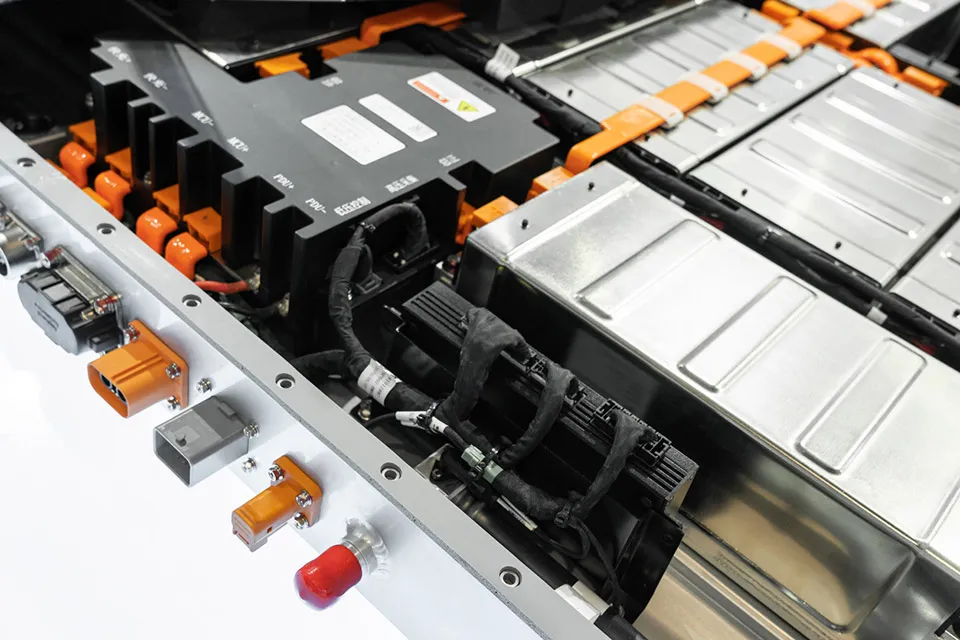How Long Do Electric Car Batteries Last?

The prospect of getting an electric car comes with many benefits: better mileage, lower vehicle costs, and the ability to lower your CO2 emissions are all attractive advantages to EV ownership. But before considering an EV purchase, you'll want to know what is the lifespan of an electric car battery. While different EVs have different lifespans, a few factors can help you decide which EV is right for you.
What Is The Lifespan of an Electric Car Battery?
The electric car battery life is around 200,000 miles, though this will vary based on the manufacturer, battery type, and where you drive. Electric car batteries have a finite number of charging cycles before their capacity diminishes. Regular charging habits and fast charging practices can affect the battery's health over time. Certain car parts will experience wear and tear at different rates, depending on the road conditions and what you use your vehicle for. If you commonly drive on poorly maintained roads, this will cause your car to break down far more quickly.
There's also the matter of city miles vs. highway miles. The constant starting and stopping of city driving can strain your engine and introduce hazards that may damage your vehicle. Accidents are more common while driving in highly populated areas, and you may run into issues with the roads, like potholes or narrow streets. Highway driving can be much easier on your car; consistent acceleration, fewer turns, and fewer stops are better for your engine and lower the risk of accidents.
All these elements have a significant effect on your electric car battery life and quality. EV battery is its most essential component; without it, your EV won't be able to function.
How Long Does an Electric Car Battery Last?

Rechargeable lithium-ion batteries have varying lifespans, ranging from 10 to 20 years. Many different factors determine EV battery lifespan, including:
- Temperature: While EV batteries can handle a range of temperatures, thermal changes will begin to reduce their ability to perform properly. Higher temperatures can significantly damage your battery's charging rate. If you live in hotter climates or leave your vehicle in direct sunlight, your EV battery may need to be changed much sooner.
- Cycling: Every time your battery goes through a charge cycle, its capacity will decrease. So each cycle will result in a small but significant amount of degradation. On average, an electric vehicle battery will last between 1500 and 2000 charge cycles. Some manufacturers have energy management systems in place specifically to combat this degradation, which can prevent noticeable changes in performance.
- Age: The amount of time a battery is in use will slowly degrade its capacity, with most EVs losing around 2% of their range each year. So after ten years, you'll notice that your battery won't be able to propel your car nearly as far as before. You can get batteries serviced and replace individual cells, but eventually, you'll need an entirely new battery.
There are also three other types of batteries used in EVs. The first type of battery is a nickel-metal hydride. These are typically seen in hybrids instead of just electric vehicles since they do need a fuel source to gain energy. The second type of battery is lead-acid. These batteries are currently only used as supplements to the bigger and more powerful lithium-ion batteries. Finally, there is another option that is not the traditional battery, but it does store power; it is called an ultracapacitor. These are only strong enough to supplement other battery sources and cannot power a vehicle on their own.
Electric Car Battery Life Frequently Asked Questions
How Long Do Electric Cars Last?
The lifespan of your electric vehicle is primarily determined by how long your battery will last. Because an electric vehicle's battery is so essential to its function, if your battery ceases to operate, your car won't be able to travel at all. On average, batteries last between 10 and 20 years before they need to be replaced.
How Much Does It Cost to Replace a Battery In an Electric Car?
How much your battery costs to replace will vary, but the average replacement will cost between $1500 and $10,000. Some luxury EVs can have even higher priced batteries, while other battery replacements may be covered by your vehicle's manufacturer. The costs of materials and labor will also determine the cost of your battery; the replacement process will usually take between 30 minutes and two hours and can be done by any licensed EV automotive specialist.
Do Electric Cars Lose Range Over Time?
Electric cars do lose range over time due to the process of battery degradation. While the degradation rate will differ depending on your battery's quality and what type of EV you drive, the average battery will lose 2.3% of its capacity each year it's in use. This degradation rate may be faster if you put your car through a higher number of charge cycles, but because the rate is so slow, you likely won't notice the range loss for 5 to 10 years.
Do Electric Cars Last Longer Than Gas Cars?
Electric car battery life is longer than internal combustion engine vehicles. The average EV can last over 200,000 miles, with some models getting as high as 400,000 miles. This longevity is partly due to their lower maintenance requirements; EVs don't need oil changes, spark plug replacements, fuel filter replacements, and fewer moving parts.
Can Electric Cars Last 20 Years?
Electric cars can last 20 years, but whether they make it that long depends on several elements. For example, your battery will likely lose its capabilities before that 20-year mark if you live and drive in hotter climates. Your battery may also burn out sooner if you cycle it often or fail to keep up with specific maintenance tasks. Federal law requires that electric vehicle batteries have warranties that last at least 100,000 miles (or eight years), but 20 years is not guaranteed.
Where Can I Get More Information About
Electric Vehicles for Sale?
The best way to find electric vehicles with longer lifespans is by doing thorough research before you buy. By getting a vehicle history report, you can get essential details about an EV before you finalize a purchase. These tools can give you information like where final assembly occurred, whether the vehicle has been in any major accidents, and what types of repairs the car has undergone. Using a VIN decoder and getting a vehicle history report can give you many advantages in the vehicle purchase process. By researching ahead of time, you can get a better deal, find cars with longer lifespans, and avoid common car-buying scams.
FREE Vehicle Search
- Accidents
- Problem Checks
- Title Records
- Recalls
- Values
- Specs
-
InfoPay, Inc. (dba GoodCar) is an Approved NMVTIS Data Provider
-
-























